The session was scheduled prior to a recent state Supreme Court decision on drug possession, but that became a key point for city leaders
VANCOUVER — A pre-scheduled work session this week to review the work of the Vancouver Police Drug Task Force turned into a debate over the war on drugs, and what role law enforcement should play when it comes to limiting the impact of illegal substances on society at large.
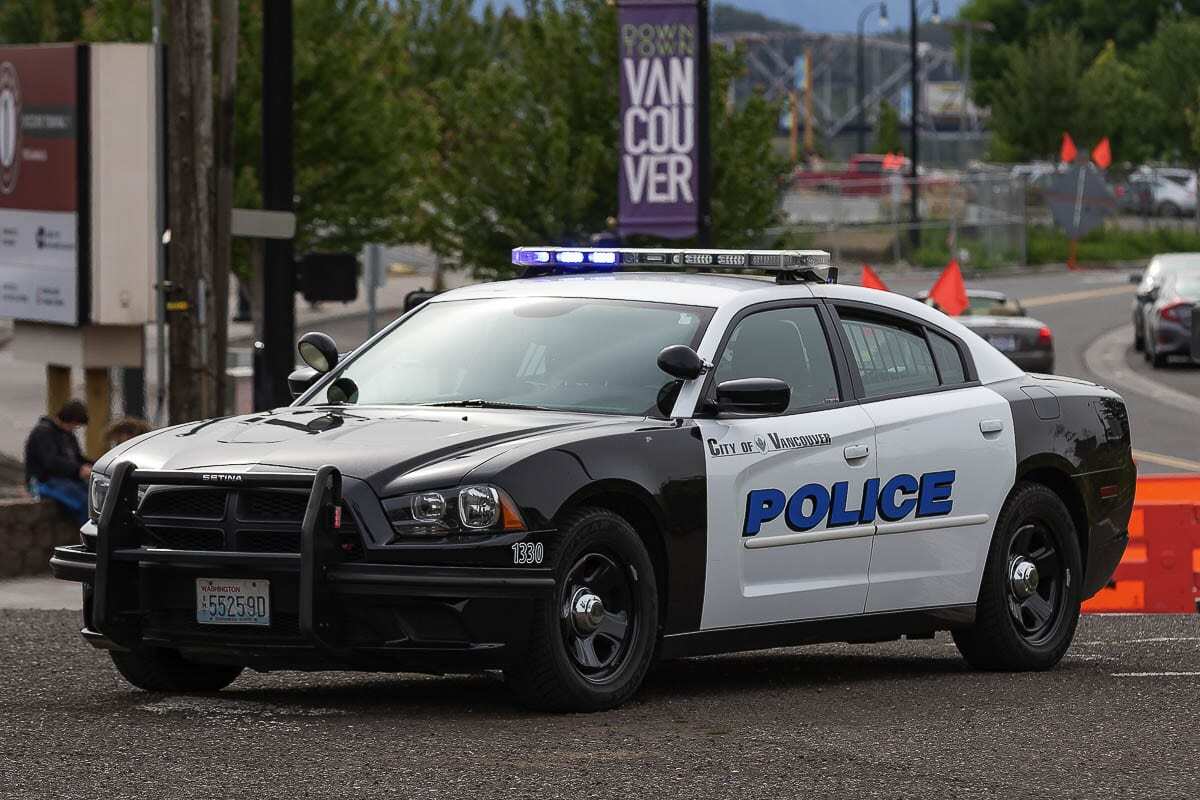
During his presentation to Vancouver City Council, Assistant Police Chief Mike Lester highlighted a number of situations in which illicit drugs have endangered members of the community, including a recent incident in which several drug task force officers were sickened by fumes from someone smoking oxycontin and fentanyl.
“During the last five years within the city of Vancouver, we’ve had 228 calls for service related to overdoses,” Lester said. “And of those 228 calls, 78 have died.”
Last year, there were 27 overdose deaths, Lester added, up from 17 in 2019.
Nationwide, drug overdose deaths have more than tripled since 1999, according to the Centers for Disease Control and Prevention (CDC), rising from fewer than 20,000 to nearly 71,000 in 2019. Preliminary data by the CDC shows that number climbed to more than 81,000 people last year.
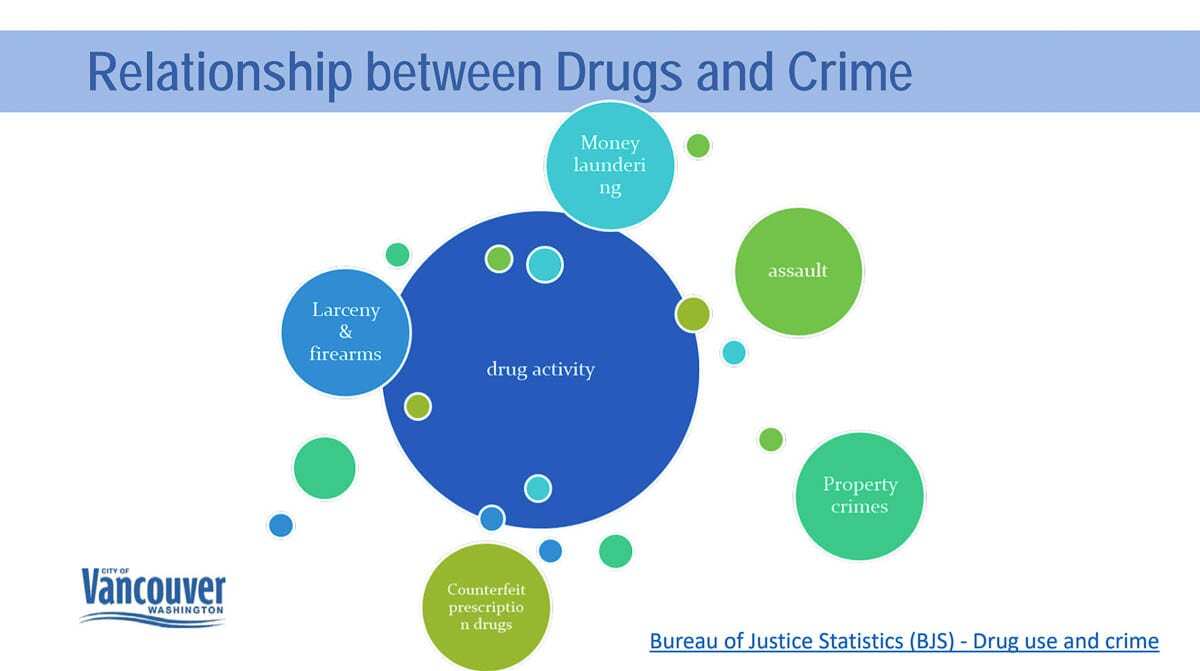
Much of that, said Lester, has been driven by a rise in counterfeit drugs flooding the market from China and Mexico, often masquerading as oxycontin or Xanax, but laced with heroin or fentanyl, a synthetic opioid that is up to 100 times more potent than morphine, and deadly in small doses.
“Based on a sampling of tablets seized nationwide in 2019, DEA found that 27 percent contained potentially lethal doses of fentanyl,” said Lester.
The discussion comes at a time of great uncertainty in the world of drug enforcement.
Last week, a divided Washington Supreme Court overturned a long-standing state law making simple drug possession illegal, whether the person in possession of the substance was aware or not.
The five justices who ruled in favor of overturning the law argued that the word “unknowing” in the statute was unique in the entire country.
“Imposing such harsh penalties for such innocent passivity violates the federal and state rule that passive and wholly innocent nonconduct falls outside the State’s police power to criminalize,” wrote the majority in their decision.
“There’s a lot of passion and energy around this issue,” acknowledged Vancouver City Manager Eric Holmes ahead of Monday’s work session, “around how our society’s approach to drug enforcement has been conducted over the last several decades.”
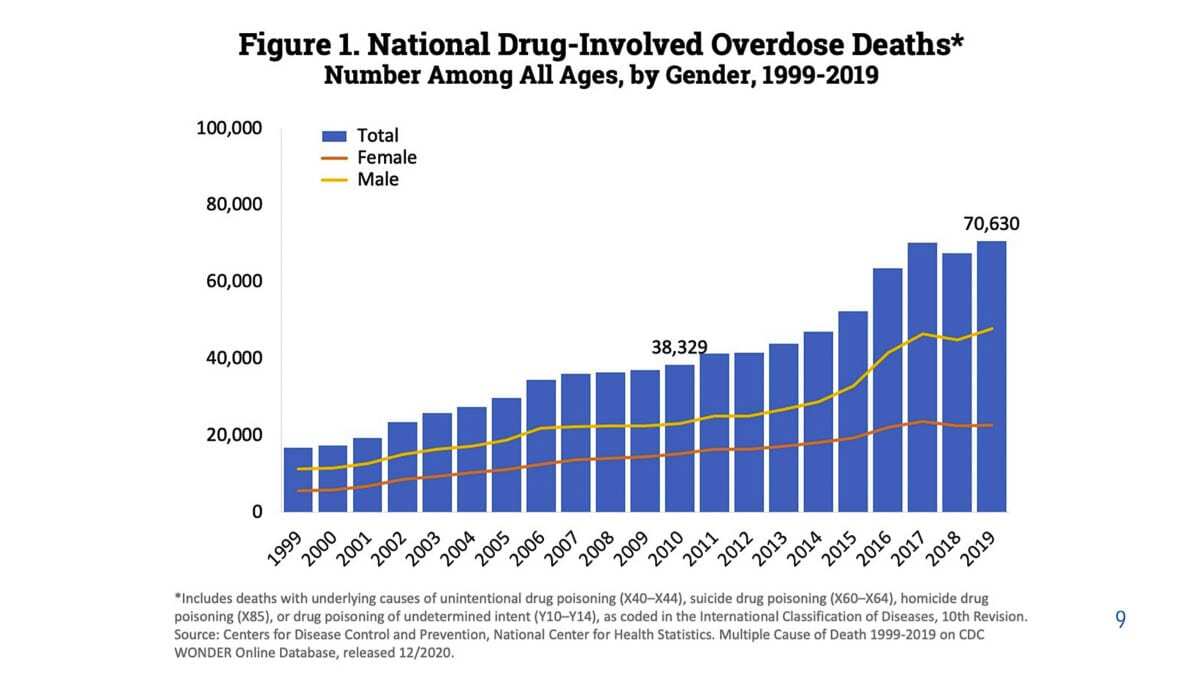
Vancouver City Attorney Jonathan Young acknowledged the court’s ruling was certainly unexpected, and creates some uncertainty. One thing it does not do, however, is “it does not make drug dealing legal. The delivery of controlled substances remains unlawful under federal law.”
The ruling, however, is retroactive, meaning thousands of people currently serving time or facing charges for drug possession could have their sentences relitigated, or pending charges dropped.
Young noted that the state legislature could simply amend the existing statute to make it clear that knowledge of drug possession is required.
“We’ll be watching carefully to see whether the Washington state lawmakers decide to make that simple fix,” Young told the council, “to add a knowing or intentional prong to the drug possession statute.”
It also comes in the months following the shooting death of two young black men following drug investigations by the Clark County Sheriff’s Office. Both of those involved allegations that the suspects were attempting to deal illegal drugs, rather than simple possession.
Police role in drug enforcement
The current makeup of VPD drug enforcement solutions involves the teamwork of street patrol officers, the Safe Streets Task Force, a multi-departmental group hosted by the FBI, as well as the Clark-Vancouver Drug Task Force and neighborhood response teams.
While Lester said they focus primarily on larger targets and major drug busts, “detectives assigned to the Drug Task Force will at times use lower level drug investigations.”
“These investigations yield valuable intel for informants involved in or associated with the larger drug trafficking organizations,” Lester added.
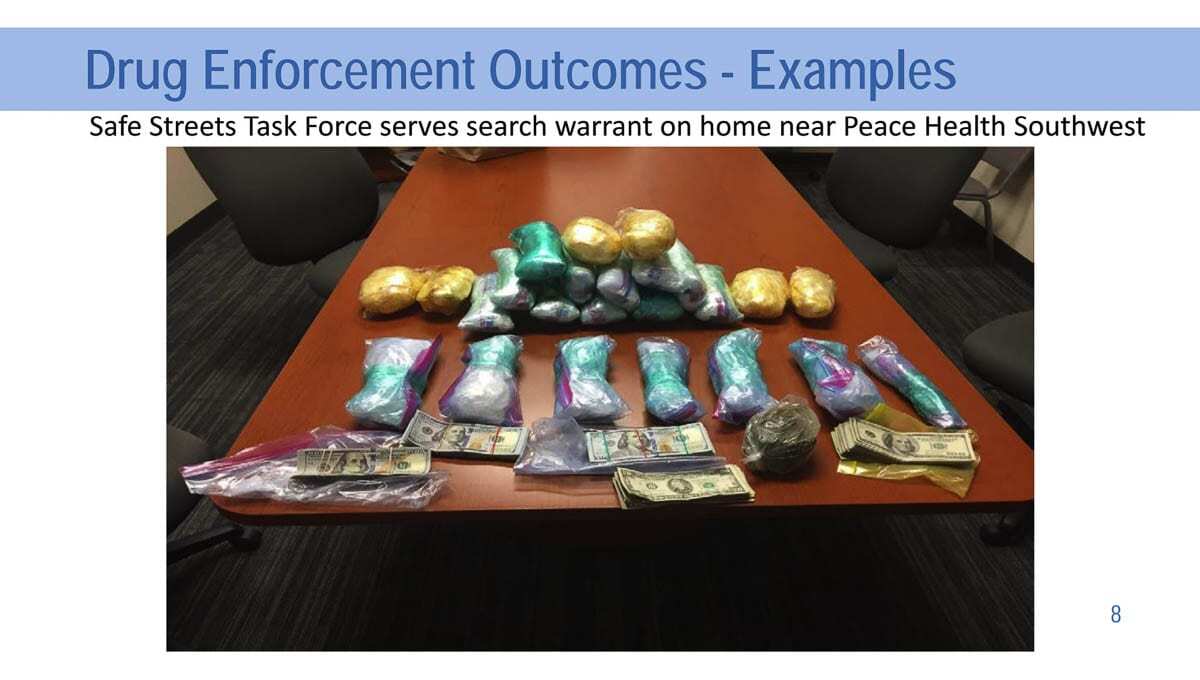
Aside from the enforcement side, VPD and other law enforcement agencies have increasingly focused on drug treatment and intervention as part of the solution.
Part of that includes the Clark County Drug Court. Formed in 1999, Lester said 668 people have graduated from the program, including 19 last year.
That amounted to 20,850 days in jail avoided, and an incarceration cost savings of $285 million, according to VPD.
“It begins with an arrest,” said Lester, “and the intent for drug court is to help navigate these individuals toward a successful outcome and staying out of the traditional criminal justice system.”
“Based on my experience, there’s not a dry eye in the house following the successful completion of the drug court program,” added VPS Chief James McElvain. “It’s all good stuff, just not enough of it.”
That comment came after McElvain stated that “law enforcement and communities alike have acknowledged we cannot arrest our way out of the crime problems that are occurring.”
Drug enforcement role under scrutiny
Those remarks followed Councilor Ty Stober, who said the presentation left him “frustrated.”
“There is no doubt this war on drugs has been forced upon us as a community, and there are implications that we can’t get away from,” added Stober. “But what we’re talking here is about, where do we start, and where do we stop?”
Stober criticized Lester for using outdated articles and studies from for-profit drug treatment centers to prop up the argument that illegal drugs continue to present a very real threat to communities, and that law enforcement has a role to play as part of the solution.
“Working together (with social services), we have made many positive impacts on individuals,” argued Lester, “as they have received services they otherwise would not have sought without law enforcement having a role.”
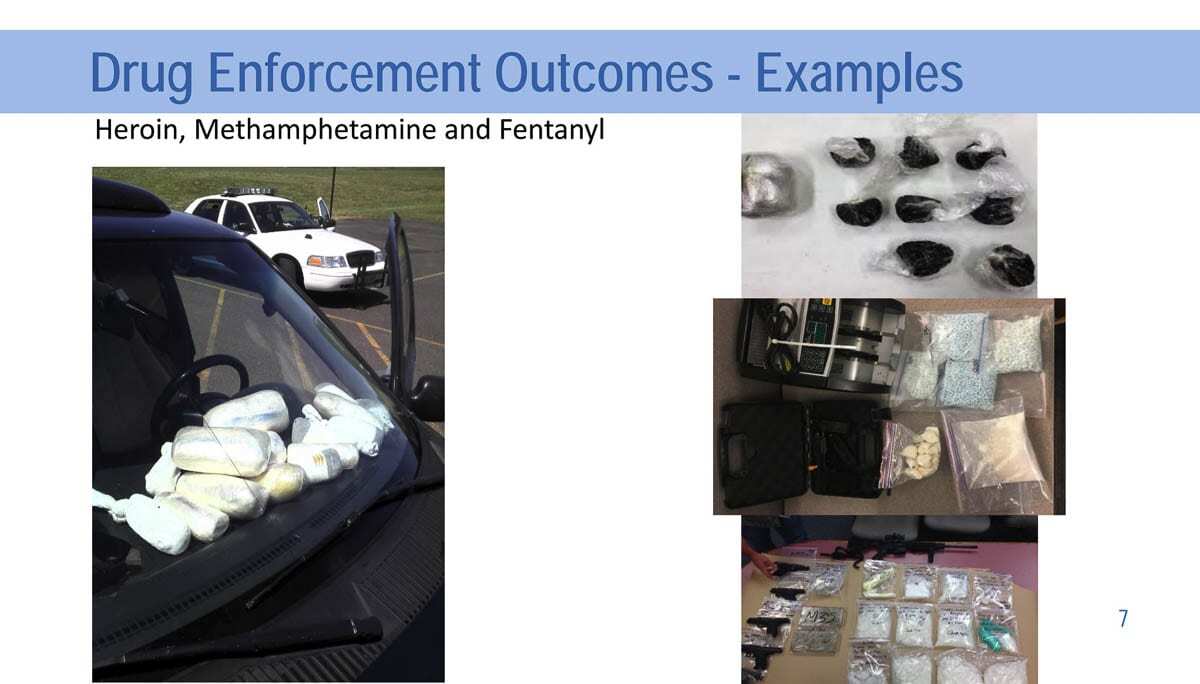
In his comments, Stober recalled how the “say no to drugs” campaign started under former First Lady Nancy Reagan did little to prevent his classmates from trying illegal drugs and medications taken from their parent’s drug cabinets.
He also noted that Lester’s presentation contained little in the way of examining how the agency’s drug enforcement efforts impact minority communities.
“I can go to a different report and share with you that whites use drugs more than blacks, and they distribute in the same amount,” argued Stober. “So how does that interpret into what we’re actually doing? And that’s where really this all gets down to is an issue of equity.”
McElvain admitted that the agency’s mission statement likely needs updated, with a better eye on issues of equity and community justice.
“Some of these, as you can imagine, have been there as legacy mission statements,” he said. “And as those boards have met, quite frankly, we have not reviewed those with this changed perspective on diversity, equity and inclusion.”
In her remarks, Councilor Sarah Fox said she would like to see more information about what goals the Drug Task Force has set, and how they plan to measure success or failure.
“I’m also wondering, even more importantly, what sort of alignment do we have with our partnership agencies when it comes to the work that we’re currently undertaking for implementing some of the changes from our PERF report,” asked Fox, “(and) working with our task force on community policing.”
Stober added to that, saying he would prefer an approach that looks forward, more than looking back at what the department’s drug enforcement efforts have accomplished.
“We’re focusing on end results,” he said, “and it ends up having a lot of negative consequences in our community. And we’ve got to get to the point, as policymakers, of saying, here’s where we’re going to focus our efforts.”




